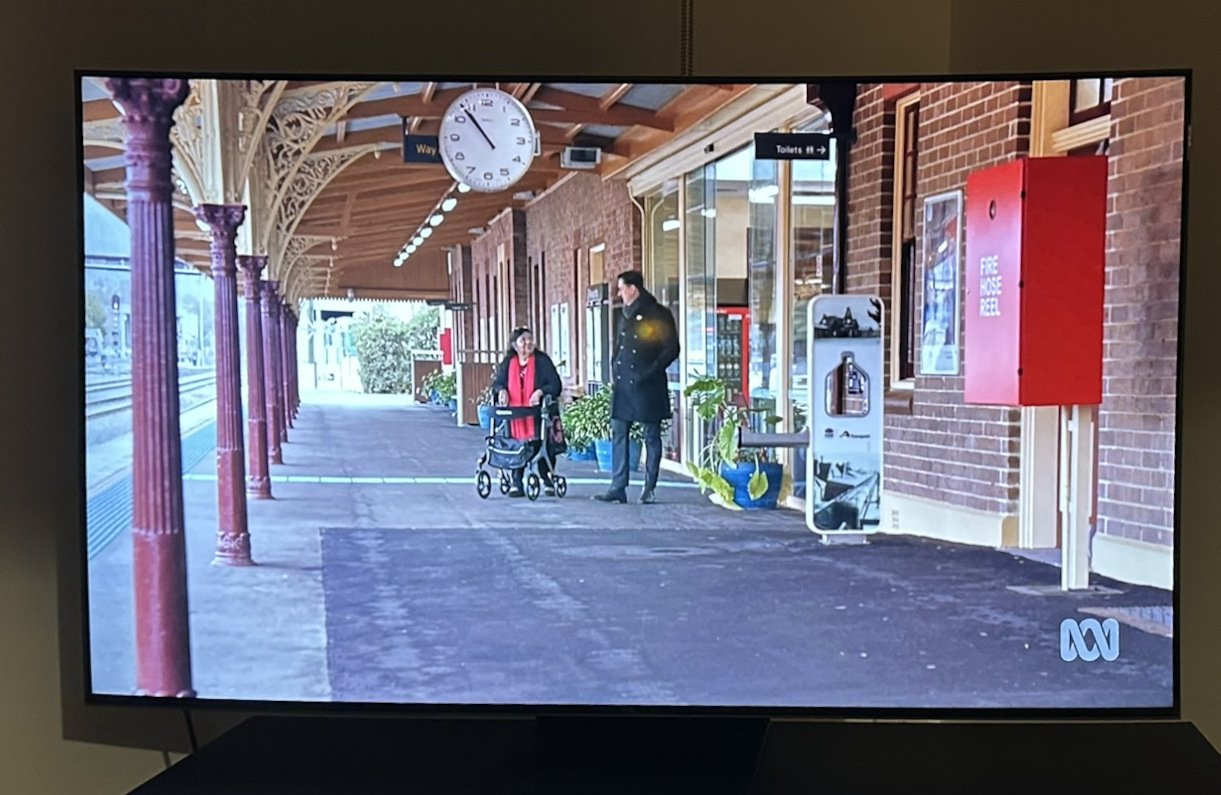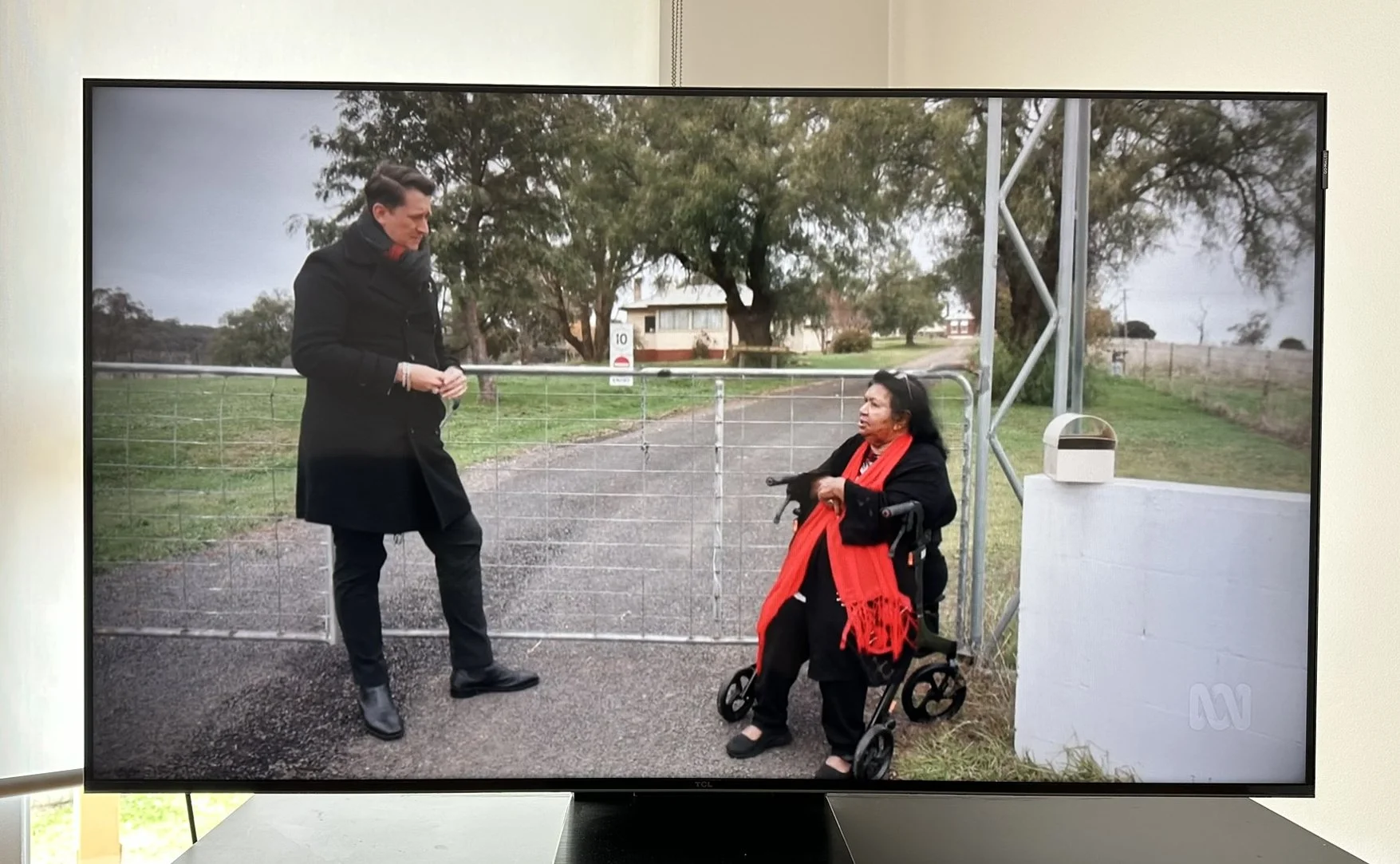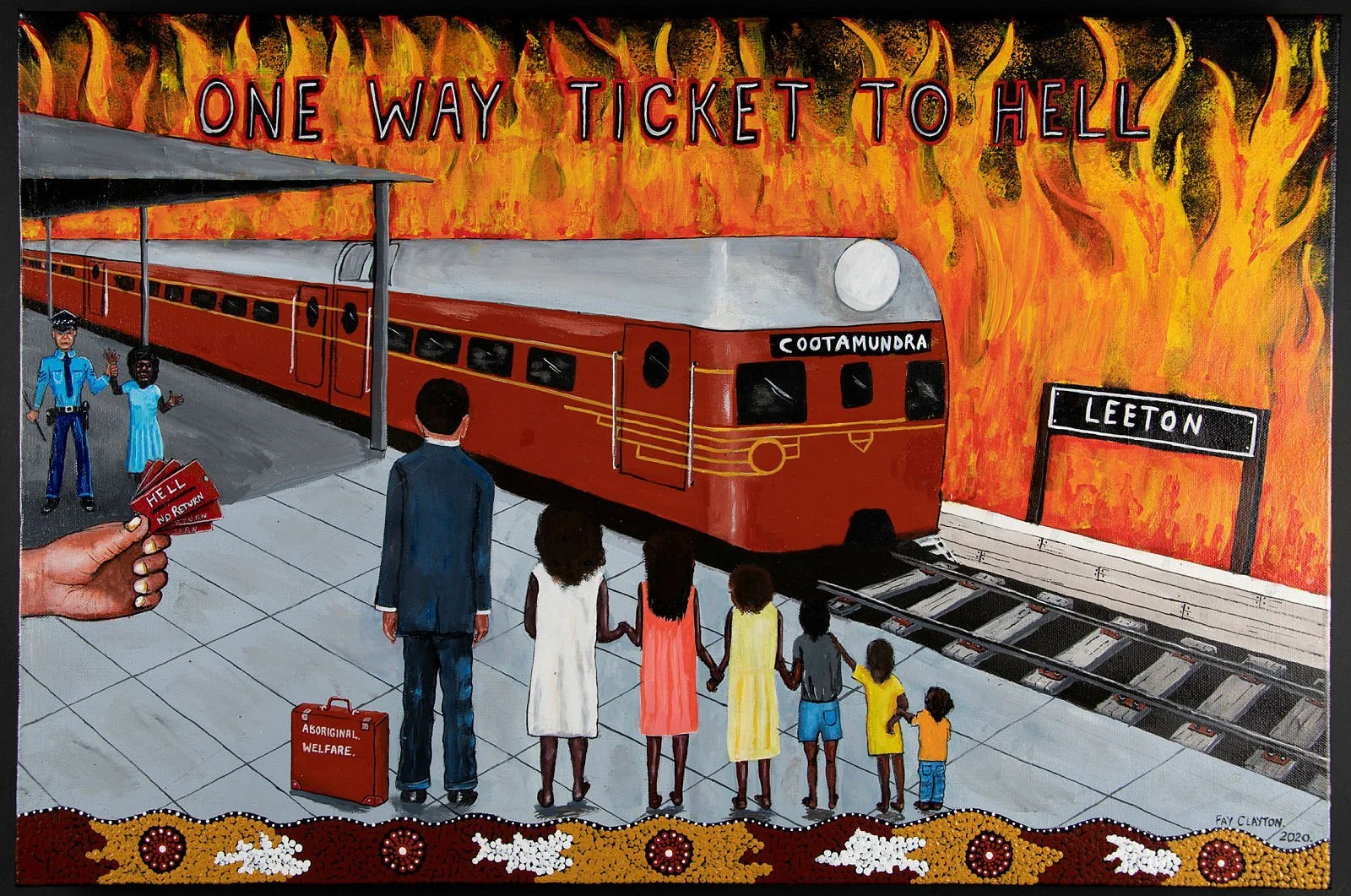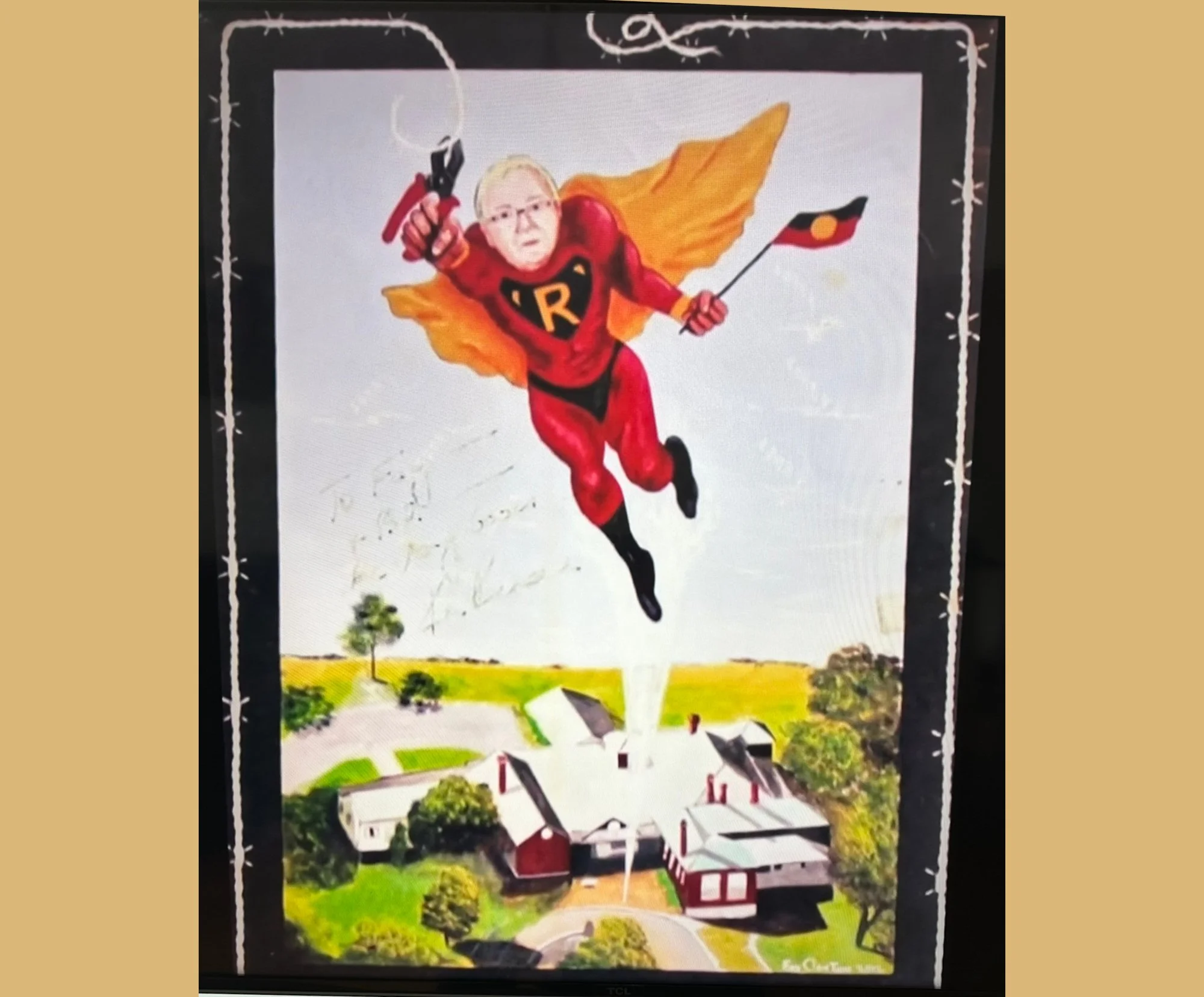Art Heals The Hurt
An episode of the ABC series One Plus One that was screened over 2 years ago still resonates with me, to the extent that I tracked it down on ABC Iview and watched it again. The subject was the Stolen Generation, and it featured a harrowing account of that period from a victim of it.
Cootamundra station where the nightmare began
Aunty Fay Clayton Moseley is a Wiradjuri woman who was stolen from her family in Leeton in New South Wales when she was just ten years old, along with her 5 siblings. Under the direction of the Aborigines Welfare/Protection Board in 1955, they were put on a train to Cootamundra, Aunty Fay and her sisters were taken to Cootamundra Domestic Training Home, while her brothers were sent to Kinchela Boys Home. She didn’t see her parents again until she was an adult. The trauma of the separation had clearly taken its toll as her parents both died shortly after the reunion.
Outside the Cootamundra Domestic Training Home
In her interview with the ABC’s Dan Bourchier, Aunty Fay spoke of the day she and her siblings were “taken” while their parents were at work. An aunt told her mother what had happened so she rushed to the station and was held back by a police officer as her children boarded the train. Her younger siblings and her mother were both crying.
She spoke of the beatings and the sadness at the Cootamundra Domestic Training Home which was a former hospital, and of girls who misbehaved being locked up in the morgue for lengthy periods. “We were never told we were loved” is a comment that really resonated. Among the lies they were fed by the authorities was that there parents didn’t want to see them again, when in fact the parents were turned away when trying to visit them. What struck me was the grace and dignity with which she related these harrowing experiences.
Aunty Fay, “One Way Ticket To Hell”
Aunty Fay said her faith kept her alive, plus a duty she felt to care for the younger children who were distressed. At Cootamundra, they were taught to renounce their aboriginal heritage. Her father served in the second world war and his “reward” was to have his children taken from him.
At the age of 14 she was sent to work in farms as an unpaid domestic servant and she ran away from all of the them due to the abuse she suffered. Later she became a nurse, devoting her life to helping others which included working in juvenile justice. She eventually married and raised a family of her own.
Aunty Fay’s response to the Rudd Government’s apology to the stolen generation.
Aunty Fay’s interest in art gives her the opportunity to process the pain of her lost childhood. She once said “art heals the hurt.”
References;
Australian Museum
ABC TV



